To celebrate International Women’s Day 2024, we talked to Random Act’s Digital Marketing Manager, Christina Orieschnig about her experiences being a woman in STEM.
Christina’s education and career in research have led her to projects in various countries and illustrate that the desire to develop solutions that help people and the planet runs deep for many of our Random Acts team members.
 Who: Christina Orieschnig, Digital Marketing Manager at Random Acts
Who: Christina Orieschnig, Digital Marketing Manager at Random Acts
What: Hydrologist, specializing in the use of satellite data and numerical modeling.
Where: Research engineer in Montpellier, France; French National Research Institute for Sustainable Development (IRD). Christina also teaches at the University of Montpellier and the Institut Agro.
Educational background: Double Master’s degrees in Civil Engineering (specializing in hydrology, hydraulics, and geotechnics – University of Life Sciences and Natural Resources in Vienna), and in Biodiversity Management and Conservation (University of Vienna).
PhD awarded for a thesis working on a project in Cambodia, focusing on understanding changes to hydrological processes on the floodplains of the Mekong River, and building a model to evaluate scenarios for rehabilitating local irrigation infrastructure to help communities impacted by the results of climate change and upstream hydropower plants.
What drew you to this field?
Ultimately, what drew me to hydrology was that I’ve always been fascinated by water and the way it interacts with the landscape. Growing up in the Austrian Alps, my father, a biology teacher at our local secondary school, often took me to the banks of the river close to our home. In the early 2000s, the Austrian government implemented a pioneering river revitalization project there, removing regulation measures implemented in the 1960s, to increase flood security and biodiversity.
Did you have anyone who inspired or mentored you on your journey?
Not really. I just made it up as I went along, following my interests and passions. Although my thesis director was really helpful during my PhD.
What could change that would make roles in STEM more accessible for women and girls where you grew up and work?
I worked for an outreach initiative while studying for my Master’s in Austria – called ‘Frauen in der Technik’/‘Women in Technology’. I think two things made the biggest impression: showing that there are women in these fields, and highlighting that while we do face misogyny and discrimination from time to time, so do women in pretty much all other fields.
Another thing that I found with my students is that just pointing out what you can do with your degree can make a huge difference. I was torn for a long time between going for an MSc in engineering and an MA in English Lit (I have a BA in English and a BSc in Biology). In the end what decided it for me was the thought that while I could always read Shakespeare for pleasure, an engineering degree would allow me to do something concrete and help people. Three years later, I was standing in a Cambodian village, talking to farmers about how the irrigation infrastructure we were working on could help sustain their crops and increase their income enough to send their kids to high school!
I think it’s getting better bit by bit for women in minorities and POC. When you go to big international conferences in my field, there are usually many different researchers from all over the world – from India and Morocco to Nigeria and Brazil. There’s also an increasing number of international students from the Global South in the Master’s courses I teach, thanks to scholarship programs and academic exchanges. What I think is needed most to support them is better funding for mobility, as well as integration support at their destination institutions. In general, and I think especially in the hydrological community, there’s a growing appreciation for indigenous knowledge and working together with local hydrologists.
Are there ways your work in science and volunteering at Random Acts intersect?

Yes! I started volunteering at RA because I knew I’d be moving around a lot during my PhD, and I was looking for an opportunity to volunteer virtually. The skills I learned in my position over the years are now really useful – from email marketing to SEO. I’m now the early career scientist representative (ECS) of the European Geosciences Union (EGU) and the leader of the Communication working group of the new scientific decade of the International Association of Hydrological Sciences (IAHS). I don’t think I would have gone for either position without the skills and the leadership experience I got from RA.
Do you have any advice for women considering pursuing study or work in your field, or sciences in general?
Find female mentors/supervisors/committee members. For my PhD, all my supervisors (director and two co-directors) and all the members of the annual thesis committee were men. It was only during my defense that I had a female committee member and thinking back, I wish I had tried to find one earlier.
Also, you’ve got to be ruthless to a certain degree. I think women often only go for positions or projects if they think they fulfill all the requirements for them. In research especially, that’s rare; many men don’t have the same inhibitions. The most useful qualities you can have as a woman in STEM, in my opinion, are an ability to learn on the fly and the audacity to try.

